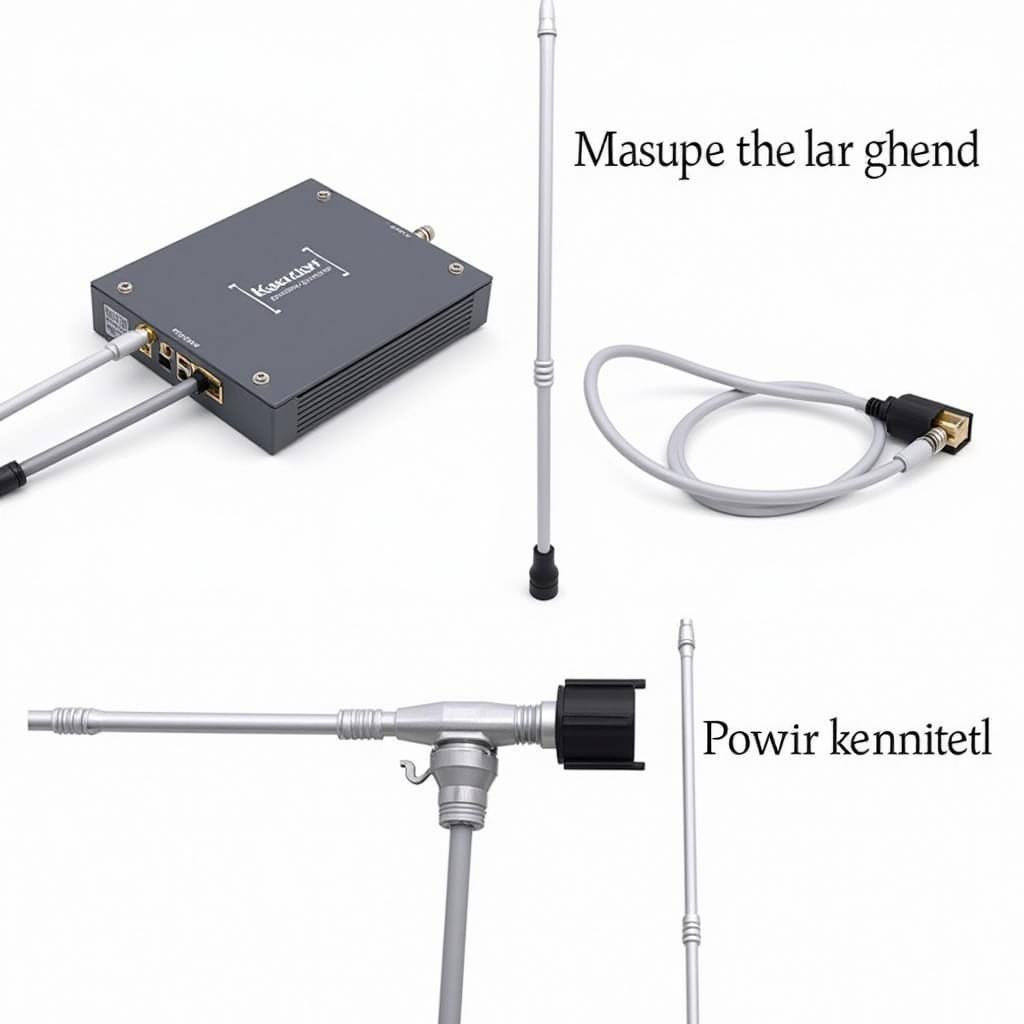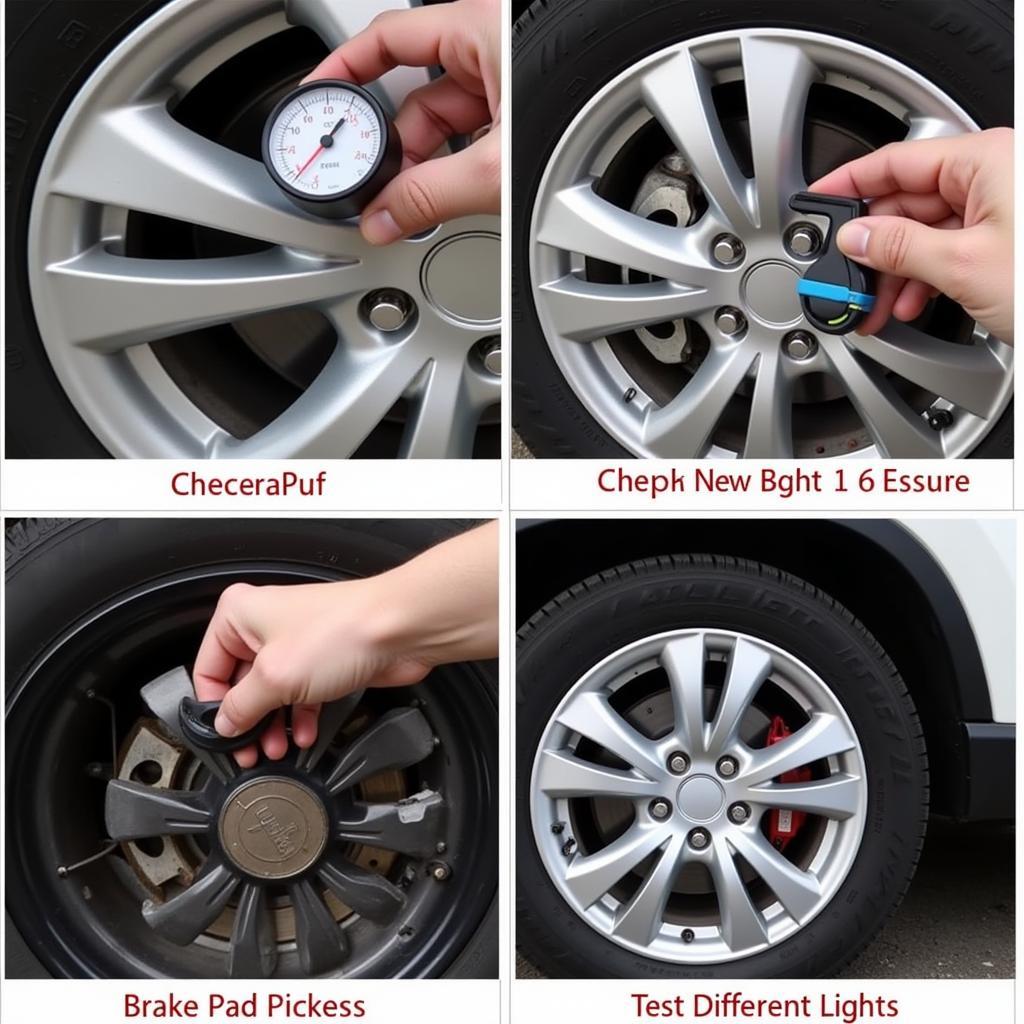Experiencing poor car stereo reception? A longer antenna cable might be the culprit, or the solution. This article addresses the common “Longer Antenna Cable Car Stereo Problem,” offering practical solutions and troubleshooting tips for car owners, repair shops, and automotive technicians.
Understanding the Longer Antenna Cable Dilemma
Adding a longer antenna cable to your car stereo seems simple enough. However, it can sometimes introduce unexpected issues like reduced signal strength, static, or even complete signal loss. Why does this happen? It’s often due to impedance mismatches, signal loss due to cable length, or poor quality cables. Let’s dive deeper into these issues and learn how to overcome them.
When a Longer Antenna Cable is Necessary
Sometimes, relocating your car stereo or installing a new antenna necessitates a longer antenna cable. Perhaps you’re customizing your vehicle or adding an aftermarket stereo system. In these cases, understanding how to choose and install the correct cable is essential for optimal performance.
Choosing the Right Antenna Cable
Not all antenna cables are created equal. Using a low-quality cable can introduce significant signal loss, especially over longer distances. Look for cables with low resistance and high shielding to minimize interference. RG-58 or RG-59 cables are generally recommended for car stereo applications. Consider the connector type as well, ensuring compatibility with both your antenna and stereo.
Measuring and Installing the Cable
Accurate measurement is crucial. Measure the distance between your antenna and stereo, adding a little extra length to allow for flexibility during installation. Avoid sharp bends or kinks in the cable, as these can damage the inner conductor and degrade signal quality. Secure the cable properly to prevent it from rattling or becoming disconnected.
Troubleshooting Reception Issues with Longer Antenna Cables
Experiencing problems after installing a longer antenna cable? Here’s a step-by-step troubleshooting guide:
- Check the Connections: Ensure all connections are secure and free from corrosion. A loose or corroded connection can significantly impact signal strength.
- Inspect the Cable: Examine the cable for any physical damage, kinks, or cuts. A damaged cable needs replacement.
- Test with a Shorter Cable: If you have a shorter antenna cable available, try using it to isolate the problem. If reception improves, the longer cable is likely the culprit.
- Consider a Signal Amplifier: A signal amplifier can boost weak signals and improve reception, especially with longer cables. These are readily available and relatively easy to install.
- Check the Antenna Ground: A poor antenna ground can cause reception problems. Ensure the antenna mount has a good electrical connection to the vehicle’s chassis.
Longer Antenna Cable Car Stereo Problem: Impedance Matching
Impedance matching is a critical factor when dealing with antenna cables. A mismatch between the antenna, cable, and stereo can cause significant signal reflection and loss. Most car stereo systems and antennas have a 50-ohm impedance. Ensure your antenna cable also has a 50-ohm impedance to avoid these issues.
“Impedance matching is like making sure the pipes in your plumbing system are the right size. If they’re not, you’ll get poor water flow,” explains John Miller, Senior Automotive Electrical Engineer at Auto Solutions Inc.
 Installing a Car Stereo Antenna Signal Amplifier
Installing a Car Stereo Antenna Signal Amplifier
Using High-Quality Connectors
The quality of your connectors can also affect signal quality. Use high-quality connectors with a good gold plating for optimal conductivity and corrosion resistance. Avoid using adapters if possible, as they can introduce additional points of failure and signal loss.
“Think of connectors as the handshake between your antenna and stereo. A weak handshake means poor communication,” says Maria Sanchez, Lead Technician at Auto Electric Specialists.
Conclusion: Solving the Longer Antenna Cable Car Stereo Problem
Dealing with car stereo reception issues related to longer antenna cables can be frustrating. However, by following the tips and troubleshooting steps outlined in this article, you can identify and resolve the problem effectively. Remember to choose high-quality cables, ensure proper impedance matching, and check your connections.
For personalized support and assistance with your car audio needs, connect with the experts at AutoTipPro. Call us at +1 (641) 206-8880 or visit our office at 500 N St Mary’s St, San Antonio, TX 78205, United States. We’re here to help you get the best sound possible from your car stereo, regardless of your antenna cable length.






Leave a Reply